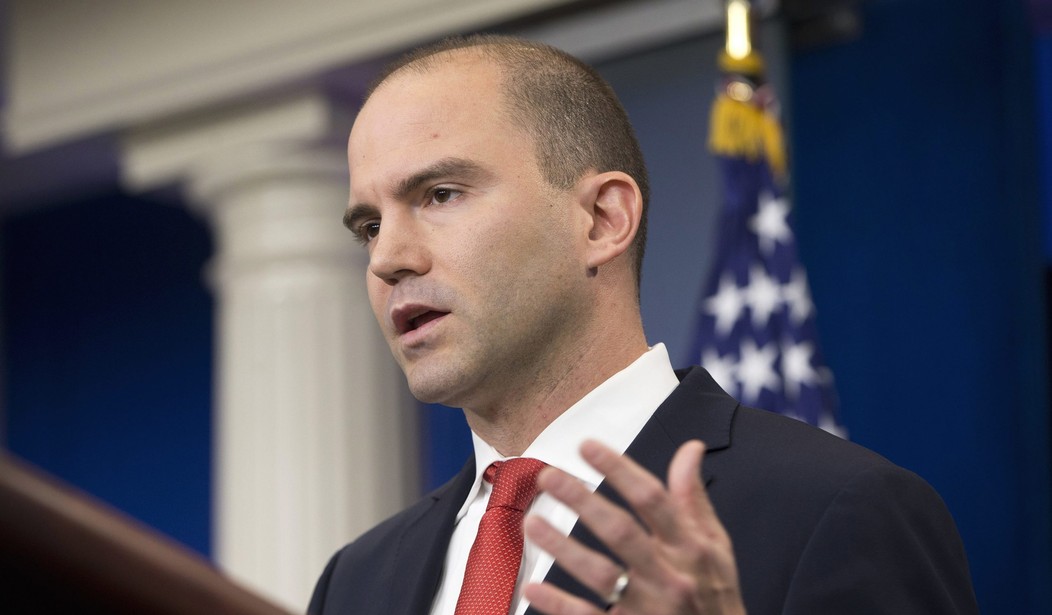A left-wing foundation linked to the Obama administration gave hundreds of thousands of dollars to several left-wing groups and news outlets — including National Public Radio — to promote the Iran nuclear deal.
The Ploughshares Fund, established in 1981, describes itself as follows:
[A] public grant-making foundation that supports initiatives to prevent the spread and use of nuclear, biological and chemical weapons and other weapons of war, and to prevent conflicts that could lead to the use of weapons of mass destruction.
Ploughshares opposes America’s development of a missile defense system, and has expressed sympathy with the Iranian regime. They are funded by, among others:
— Carnegie Corporation of New York
— Ford Foundation
–Minneapolis Foundation
— George Soros’s Open Society Institute
The Ploughshares Fund partners with a roster of well-known anti-American groups, such as:
— Code Pink
— Demos
— United for Peace & Justice
— U.S. Campaign to End the Israeli Occupation
The recent New York Times profile of Obama adviser Ben Rhodes named Ploughshares Fund as a key surrogate responsible for creating the media “echo chamber” that promoted the Iranian nuclear deal and shot down fact-based criticism of it.
According to Ploughshares’ annual report, it gave $100,000 last year to NPR “to help it report on the pact and related issues.” And since 2005, they have given the federally funded broadcaster at least $700,000.
Via AP:
In the New York Times Magazine article, Rhodes explained how the administration worked with nongovernmental organizations, proliferation experts and even friendly reporters to build support for the seven-nation accord that curtailed Iran’s nuclear activity and softened international financial penalties on Tehran.
“We created an echo chamber,” said Rhodes, a deputy national security adviser, adding that “outside groups like Ploughshares” helped carry out the administration’s message effectively.
While there is a disturbing trend of outside groups giving money to news organizations for special projects or even news coverage, the AP notes that most news organizations have rules that protect journalistic independence.
Yet it found Ploughshares’ backing “more unusual, given its prominent role in the rancorous, partisan debate over the Iran deal”:
The Ploughshares grant to NPR supported “national security reporting that emphasizes the themes of U.S. nuclear weapons policy and budgets, Iran’s nuclear program, international nuclear security topics and U.S. policy toward nuclear security,” according to Ploughshares’ 2015 annual report, recently published online.
“It is common practice for foundations to fund media coverage of underreported stories,” Ploughshares spokeswoman Jennifer Abrahamson said. Funding “does not influence the editorial content of their coverage in any way, nor would we want it to.”
Ploughshares has funded NPR’s coverage of national security since 2005, the radio network said. Ploughshares reports show at least $700,000 in funding over that time. All grant descriptions since 2010 specifically mention Iran.
In a statement to the AP, NPR denied any wrongdoing:
It’s a valued partnership, without any conditions from Ploughshares on our specific reporting, beyond the broad issues of national and nuclear security, nuclear policy, and nonproliferation. As with all support received, we have a rigorous editorial firewall process in place to ensure our coverage is independent and is not influenced by funders or special interests.
Republican Rep. Mike Pompeo of Kansas is questioning the independence of NPR’s coverage on the Iran nuclear deal. Pompeo says he repeatedly asked NPR to allow him on the air to be interviewed as a counterweight to a Democratic supporter of the agreement who regularly appeared on the station:
NPR refused to put Pompeo on the air, he said. The station said it had no record of Pompeo’s requests, and listed several prominent Republicans who were featured speaking about the deal or economic sanctions on Iran.
Another who appeared on NPR is Joseph Cirincione, Ploughshares’ president. He spoke about the negotiations on air at least twice last year. The station identified Ploughshares as an NPR funder one of those times; the other time, it didn’t.
Other media outlets have taken money from Ploughshares, including the Guardian, Salon, Huffington Post and Pro Publica. AP reports that the Ploughshares Fund also gave money to individual reporters at The Nation and Mother Jones to generate news coverage, and that other groups Ploughshares funded last year include:
The Arms Control Association ($282,500); the Brookings Institution ($225,000); the Atlantic Council ($182,500); the liberal Jewish political action group J-Street ($576,500) and the National Iranian American Council ($281,000).
The National Iranian American Council (NIAC) is the Iranian regime’s principal lobbyist in the United States.
Emails produced during the discovery phase of a defamation lawsuit — brought by top NIAC official Trita Parsi — revealed in 2012 that Parsi had been visiting the Obama White House since 2009. Parsi consulted with Valerie Jarrett, briefed Secretary of State Hillary Clinton, and even delivered lectures to the CIA.
The NIAC, in turn, has used the services of ultra left-wing public relations firm Fenton Communications to help it convey an anti-sanctions message to the American public.
Fenton Communications promoted the Alar scare and other bogus health scares, and was behind the infamous “General Betray Us” ad in 2007 attacking General Petraeus.
The firm is also very active in promoting climate change propaganda.
Months after it went into effect, it has become clear that the Obama White House used sinister and nefarious means to sell the unpopular Iranian nuke deal.
Sadly, Obama’s willing dupes in the media were apparently more than “happy to be managed” by him.









Join the conversation as a VIP Member